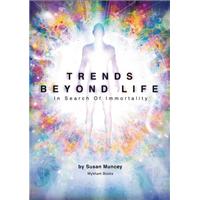Red Reishi, was once so rare that its use was reserved solely for Chinese emperors who revered it as the secret to youth, health and beauty.
Today though reishi is available around the world, but it appears the Emperors were onto something as research, just published, shows the unusual mushroom has real anti-aging properties and deserves its name as the Mushroom of Immortality.
Two new studies just published have further re-enforced the research that red reishi (Ganoderma lucidum) can be hugely beneficial for helping to protect our bodies from the ravages of old age.
The first new paper, published this month 1, shows that in aging cells an extract of G. lucidum (reishi) has a significant effect on reducing the processes that cause cells to age and improves their energy production systems.
The second paper 2 also used an extract of G. lucidum and showed that it may be effective at improving the function of mitochondria, the factories that produce energy in our cells, and whose function is reduced with age. The researchers go onto suggest that there could be a therapeutic application for red reishi against ageing associated neurodegenerative diseases.
These new studies add further weight to the anti-aging research that has gone before – papers have shown that these mushrooms can have potent immuno-modulating action so could potentially have a real complementary effect for people with, or who are recovering from, cancer 3, 4, 5, so much so that Cancer Research UK commissioned a paper on them. The mushrooms have also been seen to contain active molecules which could help reduce the effects of arthritis 6, 7.
It is easy to see then why the Emperors were so keen to keep this secret to themselves and it appears nature could have provided the anti-aging remedy we have all been looking for.
Making it harder to argue against the benefits of Reishi is the fact that its effects can be felt so quickly and there are no side-effects from its use. It is however important to bear in mind that the key to Reishi mushrooms effectiveness are their adaptogenic qualities; that is to say that they help to normalise the body and aid its natural processes via active substances found in the mushrooms such as water-soluble polysaccharides and triterpenes. The efficacy of the mushrooms can vary dramatically depending on how they are grown. The mushrooms draw nutrients up through their stalks from the medium on which they are grown and this determines the quantity of active substances within the mushrooms themselves. Mikei Red Reishi Essence mushrooms are grown in aged Japanese Oak logs in the most natural conditions possible and take a full year to reach maturity, resulting in one of the highest quality and most effective extracts available.
Mikei Red Reishi Essence is a Reishi extract that couldnt be easier to use and comes in ready to swallow vegetable based capsules; for general health and well-being only one capsule needs to be taken daily. Extracted from mushrooms grown in Japan, Mikei Red Reishi Essence is the most concentrated Reishi extract on the market and is now available in the UK from Haeon Limited. Buy online at www.haeon.com or from leading health stores.
Editor notes and example studies
1. Ganoderma lucidum (Fr.) P. Karst enhances activities of heart mitochondrial enzymes and respiratory chain complexes in the aged rat.
2. Effect of Ganoderma lucidum on the activities of mitochondrial dehydrogenases and complex I and II of electron transport chain in the brain of aged rats.
3. Medicinal mushrooms: their therapeutic properties and current medical usage with special emphasis on cancer treatments.
John E Smith. Emeritus Professor of Applied Microbiology, University of Strathclyde. Chief Scientific Officer, MycoBiotech Ltd, Singapore. Neil J Rowan. Lecturer, Department of Bioscience, University of Strathclyde. Richard Sullivan. Head of Clinical Programmes, Cancer Research UK
Cancer Research UK – 2003
4. Anti-inflammatory and anti-tumor-promoting effects of triterpene acids and sterols from the fungus Ganoderma lucidum. Akihisa T, Nakamura Y, Tagata M, Tokuda H, Yasukawa K, Uchiyama E, Suzuki T, Kimura Y. Chem Biodivers. 2007 Feb;4(2):224-31.
5. Ganoderma lucidum inhibits proliferation of human breast cancer cells by down-regulation of estrogen receptor and NF-kappaB signaling. Jiang J, Slivova V, Sliva D. Int J Oncol. 2006 Sep;29(3):695-703.
6. Ganoderma lucidum polysaccharide peptide reduced the production of proinflammatory cytokines in activated rheumatoid synovial fibroblast. Ho YW, Yeung JS, Chiu PK, Tang WM, Lin ZB, Man RY, Lau CS. Mol Cell Biochem. 2007 Jul;301(1-2):173-9. Epub 2007 Jan 12
7. Anti-inflammatory and anti-tumor-promoting effects of triterpene acids and sterols from the fungus Ganoderma lucidum. Akihisa T, Nakamura Y, Tagata M, Tokuda H, Yasukawa K, Uchiyama E, Suzuki T, Kimura Y. Chem Biodivers. 2007 Feb;4(2):224-31.



